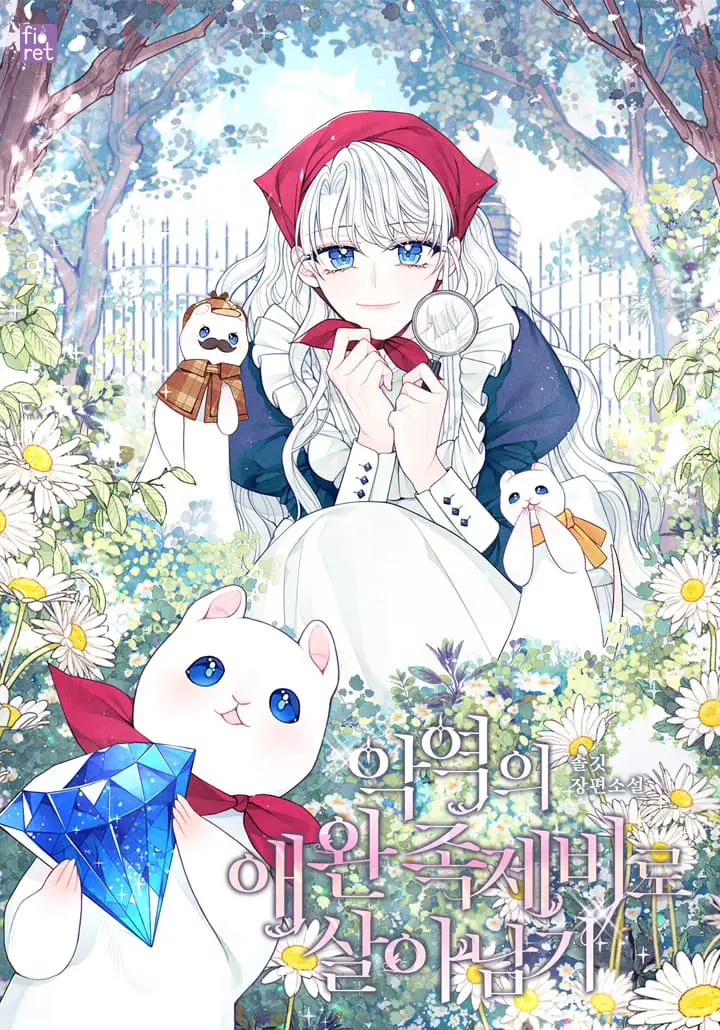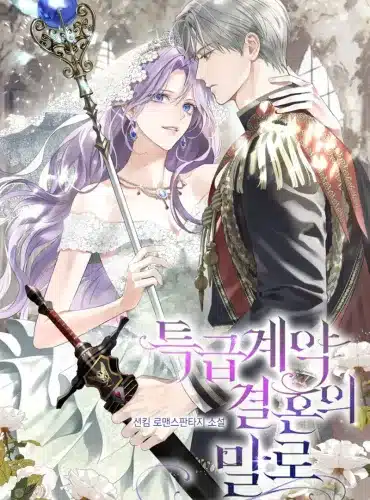Chapter 2: The Ghost Woman
“What’s this talk of a ghost woman?”
“Good heavens, I saw her with my own eyes, my lord! And not just me—every soul in the village saw her too. Hair all loose, wearing strange clothes— what else could she be but a ghost woman?”
“Quiet, you fool! Spouting nonsense about apparitions!” Hong Eonguk snapped, though he was already tying his hat’s strings, preparing to head out.
The villager’s face was still etched with unease. “Isn’t this a sign of some great calamity? We must report to the governor at once—”
“Enough!” Hong Eonguk cut him off. “The old saying warns against speaking of monstrous forces and spirits. If such talk reaches the governor’s ears, you’ll all be in for a thrashing—do you understand?”
With a final glare, Hong Eonguk adjusted his official robes and swept out the gate, his coat tails billowing. He’d dismissed the matter loudly, but something nagged at him. He needed to see it for himself. The villager trailed behind, muttering like a drenched dog.
“My lord, I tell you, it’s an ill omen. A famine this year, or a fishing boat capsized—something’s bound to go wrong.”
Hong Eonguk barely listened, climbing onto the horse waiting in front of the governor’s office. He turned to the servant beside him. “Deokchul, go to the office now and tell the duty officer to gather the guards.”
“At this hour, my lord? Why the guards?” Deokchul asked, startled.
“If this stranger was swept here by the current, they might be a shipwrecked drifter—best case. But what if they’re a pirate or a remnant of the Japanese raiders?”
“Pirates? Japanese?” Deokchul’s eyes widened, and he scurried off, urgency in his steps. The villager, overhearing, gaped, his eyes round as coins.
“See? I knew something was brewing!”
“Hold your tongue, fool, or you’ll be the first to regret it!” Hong Eonguk growled, yanking the reins with a sharp “Hyah!” The sturdy horse from the Gyeonggi governor’s stable galloped off, its hooves thundering into the distance.
“Hey… can you understand me? Hello?”
Jiyeong, soaked to the bone, dragged herself toward the shore. Each step she took made the villagers murmur and shuffle back a pace. It wasn’t fear of her appearance so much as the wariness one might feel toward an unfamiliar creature.
“You speak Korean, right? Where am I? Please, say something.”
Snatches of their voices reached her ears. The words weren’t entirely clear, but they were familiar—archaic, like dialogue from a historical drama.
“Is this a film set? A drama? Whatever it is, it’s incredibly realistic. In every way.”
Jiyeong forced a smile, trying not to provoke them as she edged closer. But the villagers’ guarded expressions didn’t soften.
Suddenly, a bellow cut through the air. “Halt!”
At the command, the villagers in their coarse, homespun clothes dropped to the ground, bowing low in a wave of submission. Jiyeong alone remained standing, bewildered. The reason became clear soon enough. A dozen guards clad in black jackets, spears in hand, surged forward, surrounding her. Behind them, a man in a wide-brimmed hat sat astride a horse, his voice ringing with authority.
“I am Hong Eonguk, deputy to the Gyeonggi governor. Stranger, explain yourself—why have you washed up here? Speak plainly.”
From his perch, Hong Eonguk’s sharp gaze bore down on her. The spear-wielding guards mirrored his suspicion.
“Well, um… I’m not entirely sure, but I think I was in a car accident… in France… on the highway to the airport…” Jiyeong’s words tumbled out in a jumbled mess, her attempt at explanation faltering.
The villagers, still prostrate, and the guards, gripping their spears, exchanged puzzled looks. Even the man on horseback seemed baffled. Clearly, none of them fully grasped her words.
“Strange speech,” Hong Eonguk remarked. “A dialect I’ve never heard. First, tell me where you’re from.”
Jiyeong realized she needed to ease their suspicion. Answering quickly seemed the best approach. “I’m Korean. A citizen of South Korea.”
“South Korea?” Hong Eonguk frowned. “Is there such a place?”
“Perhaps a small nation in the southern barbarian lands,” the duty officer, wearing a military cap, whispered to Hong Eonguk. “I’ve heard there are many tiny island nations south of Ryukyu.”
Hong Eonguk nodded, as if it made sense. “Very well. Since you seem to speak our tongue, I’ll ask again. How did you come from this ‘South Korea’ to the land of Joseon? Speak the truth.”
Jiyeong had a mountain of questions herself, but their relentless interrogation left her at a loss. Simplicity seemed her only option. “Well… I was in a traffic accident. You know, a crash? Cars colliding? And somehow, I ended up here…”
She gestured awkwardly, trying to keep it clear, but a villager, still bowing, suddenly shouted, “She’s a ghost woman! Look at her strange appearance and cunning speech—she speaks our tongue too well! I’ve lived decades and never seen such a thing!”
As if on cue, murmurs erupted among the villagers. “A ghost woman!” “An ill omen!” “The taxes are already crushing us—if a famine hits, we’ll all starve!” “Something terrible is coming!” “We must throw her back into the water—the spirits are angry!”
The crowd’s unrest grew, rooted in palpable fear. What are they so afraid of? Jiyeong wondered, panic rising.
“Silence!” Hong Eonguk’s roar cut through the clamor. The duty officer beside him drew his sword with a chilling shiiing, and the crowd fell silent, as if doused with cold water. These were people of a dynastic age, conditioned to obey the ruling class. But their quiet was temporary—Jiyeong could sense their resentment simmering, ready to boil over.
“We can’t leave this as is,” Hong Eonguk said. “We cannot deal with a stranger without proper interrogation. Take her to the governor’s office.”
“Move! Bind her with ropes!” the duty officer barked. The guards rushed forward, swiftly tying Jiyeong with coarse cords.
Something had gone terribly, catastrophically wrong.
Jiyeong sat in a cell filled with straw, reminiscent of a barn, her mind racing. This wasn’t just a mistake—it was a disaster. She had been driving on the Paris outskirts toward the airport. Then came the blinding headache. That was the last thing she remembered.
And now, she was here.
How Jiyeong had come from France to this place was a mystery, but an even greater question swirled in her mind.
Is this really the Joseon era?
At first, she’d wondered if this was a film or drama set, if these people were meticulously trained actors. But as she was brought to the Gyeonggi governor’s office, that notion crumbled. Not a single modern building had crossed her path. No cars, no motorcycles—just the occasional oxcart or donkey led by wandering merchants.
Have I truly been transported to the Joseon era?
She asked herself repeatedly, but no matter how unbelievable it seemed, she couldn’t deny what her eyes saw. When she asked the guards what year it was, they only replied that it was the “Gapja year.” In Joseon, commoners marked time by the sixty-year cycle, so expecting more precise answers was futile. She could only guess it was one of the many Gapja years in history.
But knowing the exact year was less urgent than another question: Is there a way back to my own time?
She had been rushing back to Korea upon hearing her father was in a coma, only to end up in this unthinkable place. She had to find a way back, and soon. As she pondered, her gaze drifted to the moon visible through the wooden bars of her cell. Its serene glow offered a flicker of courage. That moon, at least, shone the same in every place, every era, its light a constant in an uncertain world.
Tomorrow will likely be a long day.
Hong Eonguk, deputy to the Gyeonggi governor, stared at the moon hanging in the night sky, his heart heavy. Tomorrow, he would have to host important guests. The Gyeonggi governor, Hong Guidal—his father—was a respected figure in the royal court, and as his son, Eonguk was expected to handle the reception. But the occasion promised to be a bed of thorns.
The guests visiting tomorrow are notorious corrupt officials, wielders of fearsome power…
A deep furrow creased Eonguk’s brow. His father’s rigid, principled nature had earned him many enemies—a fact well-known in the court. That was why Eonguk had no desire to let the evening’s commotion near Mapo Port spiral into something larger.
If rumors of a ghost woman emerging from the water spread, it could be used as an excuse to accuse us of failing to govern the people.
For now, he had confined the stranger to a cell and ordered the villagers to keep silent, hoping to prevent any trouble.
“So, Father, what did this stranger look like?”
A clear, childlike voice pulled Eonguk back to the present. Before him sat a pretty girl with neatly braided hair—his thirteen-year-old daughter, her eyes sparkling with curiosity. She was always asking him about the ways of the world.
“I’ve never seen such a peculiar figure,” he replied. “She wore a strange jacket and tight trousers, with curly hair left loose. No wonder the villagers mistook her for a ghost woman.”
“That’s so fascinating! Where did she say she was from?”
“She mentioned a place called ‘South Korea.’ From what I’ve heard, it might be some small island nation in the south.”
His daughter’s innocent curiosity warmed his heart, but it also deepened his unease. Tomorrow’s guests were the infamous “Im father and son”—Im Sahong, Minister of Works, and his son, Im Sungjae, the Chief Royal Secretary. They were known as the vilest of corrupt officials, whose schemes had ruined countless households.
Please, let there be no trouble…
As Eonguk gazed at his daughter’s guileless face, his own expression grew ever grimmer.
Author’s Note
Hong Eonguk (1475–1540)
The son of Gyeonggi Governor Hong Guidal, in historical records, he was exiled after refusing to let his daughter enter the palace as a concubine for King Yeonsangun. This incident marked the beginning of the “Gapja Purge.”


















